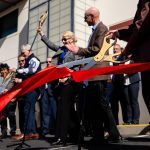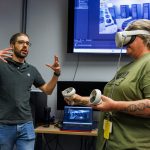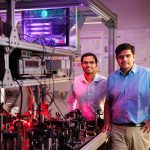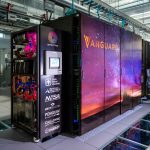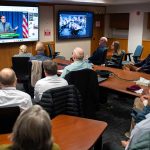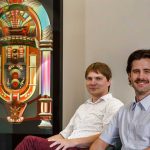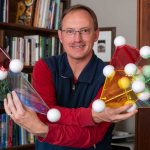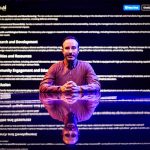NNSA, Sandia, KCNSC cut ribbon on CAMINO
Sandia and NNSA leaders celebrated the opening of the Center for Advanced Manufacturing and Innovation, a capability that enables rapid prototyping and shortens development life cycles.
What Sandians are saying about the future of AI at work
The White House’s commitment to artificial intelligence is clear. But how much of this fervor has made its way through the rank and file of the Labs?
Physicists employ AI labmates to supercharge LED light control
A fourfold improvement in lab results bridges basic science with next-generation technology.
Not the largest supercomputer, but maybe the most interesting
Sandia and tech company NextSilicon abandon design norms to pursue the frontiers of computing technology.
Sandia-led team awarded $10M by DOE to explore materials fatigue, self-healing with AI
“This isn’t just an advance in materials science. It’s an opportunity to modernize how we practice science itself,” says project lead Rémi Dingreville.
Three national security laboratories, one AI model
Sandia, Los Alamos and Lawrence Livermore national laboratories have proven that it's possible to share a large language model without compromising sensitive data from each lab.
DOE launches Genesis Mission to transform American science and innovation through AI computing revolution
On Nov. 24, President Trump issued an Executive Order to launch the Genesis Mission, a historic national effort led by the DOE.
Predicting the (un)knowable
A Sandia team develops a method to make quantum computing more fruitful.
Quantum magic
Sandia researchers validate a new algorithm for error-resistant quantum computation.
SandiaAI Chat: You asked, this team answered
The project lead gives a sneak peek at new features that could arrive over the next year.

